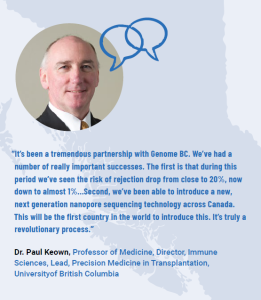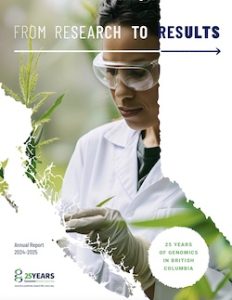October 28, 2025
 Every year, hundreds of British Columbians receive a second chance at life through kidney transplantation. But for many, that hope comes with lifelong immunosuppressive drugs and the risk of rejection. In BC, that’s beginning to change.
Every year, hundreds of British Columbians receive a second chance at life through kidney transplantation. But for many, that hope comes with lifelong immunosuppressive drugs and the risk of rejection. In BC, that’s beginning to change.
Led by Dr. Paul Keown, a team of researchers and clinicians is implementing a genomic approach to improve transplant outcomes, using detailed genetic sequencing to better match donors and recipients at the level of the immune system. By identifying epitope-level compatibility (tiny markers the immune system recognizes), they can predict and prevent rejection before it starts.
Supported by Genome BC in collaboration with Canadian Blood Services, this approach is already in use across BC as a test bed for national adoption. This approach is helping clinicians make more informed decisions, reduce complications and in some cases, eliminate the need for lifelong anti-rejection medication.
This isn’t just a technical advance — it’s a shift in how transplantation medicine is practiced. With one of the world’s largest prospective transplant cohorts, BC is setting a new standard for precision immunology. And for patients, it means more than a matched kidney — it means a safer, healthier future.
This article appears in Genome BC’s 2024/25 Annual Report. View the whole report here.






